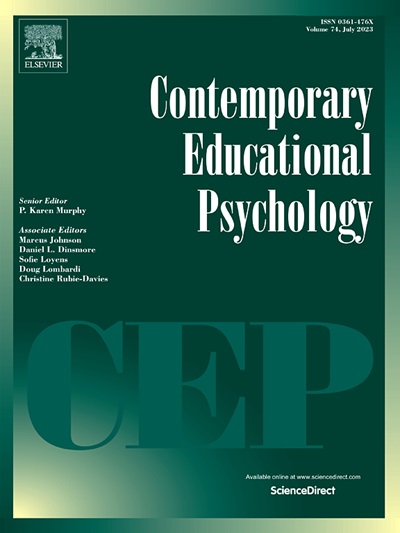What we learn in school, we learn for life: Learning opportunities as moderators of the relationship between prior knowledge and learning in post-school contexts
IF 3.9
1区 心理学
Q1 PSYCHOLOGY, EDUCATIONAL
引用次数: 0
Abstract
A commonly held belief is that knowledge acquired in school (KAS) matters for later stages of education because it enables individuals to make better use of new learning opportunities. The current study approached this question by examining the role of domain-specific KAS for the development of professional knowledge (PK) in vocational education and training (VET). Our analyses recurred on (1) school achievement tests that assess domain-specific KAS in chemistry, physics, and math, (2) occupation-specific achievement tests in the same domains to assess PK (and its development) in VET, and (3) comparisons between different VET programs to isolate the effects of learning opportunities on PK acquisition over time and their interaction with KAS. Data stemmed from a sample of N = 2,775 trainees from three VET groups (chemical laboratory assistants, technicians, and industrial clerks) that are characterized by a focus on different knowledge domains. Our findings suggest that VET does not affect the knowledge assessed with school achievement tests. Instead, VET programs provide learning opportunities that facilitate the acquisition of domain-specific PK. In addition, KAS matters for subsequent learning in VET because it (1) determines the level of PK with which trainees enter VET and (2) enables trainees to make better use of the learning opportunities to develop their professional knowledge.
求助全文
约1分钟内获得全文
求助全文
来源期刊

Contemporary Educational Psychology
PSYCHOLOGY, EDUCATIONAL-
CiteScore
16.50
自引率
3.90%
发文量
74
期刊介绍:
Contemporary Educational Psychology is a scholarly journal that publishes empirical research from various parts of the world. The research aims to substantially advance, extend, or re-envision the ongoing discourse in educational psychology research and practice. To be considered for publication, manuscripts must be well-grounded in a comprehensive theoretical and empirical framework. This framework should raise critical and timely questions that educational psychology currently faces. Additionally, the questions asked should be closely related to the chosen methodological approach, and the authors should provide actionable implications for education research and practice. The journal seeks to publish manuscripts that offer cutting-edge theoretical and methodological perspectives on critical and timely education questions.
The journal is abstracted and indexed in various databases, including Contents Pages in Education, Australian Educational Index, Current Contents, EBSCOhost, Education Index, ERA, PsycINFO, Sociology of Education Abstracts, PubMed/Medline, BIOSIS Previews, and others.
 求助内容:
求助内容: 应助结果提醒方式:
应助结果提醒方式:


